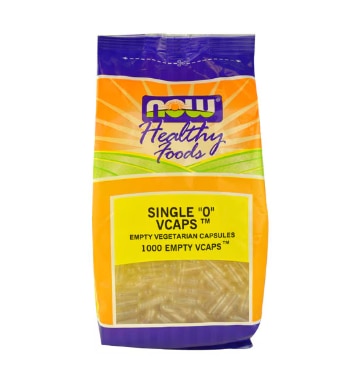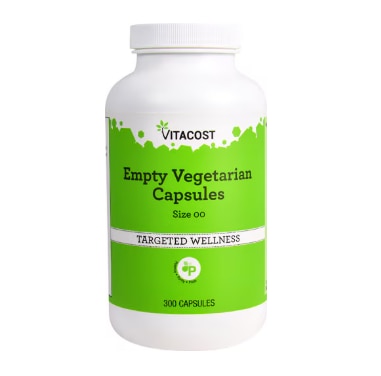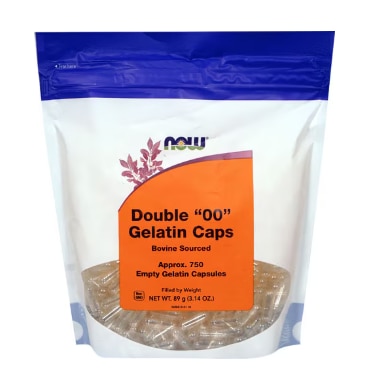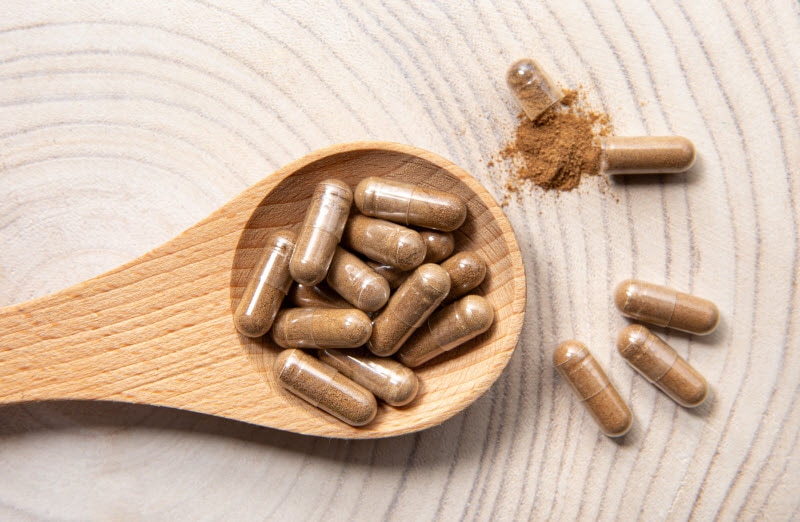Have you ever considered making your own supplements? If you are a health-minded, creative person, this may be right up your alley. Before jumping in, however, it makes sense to consider recommended guidelines, and to determine the best ingredients in terms of both safety and efficacy.
What are the benefits of making your own supplements?
One of the advantages of crafting your own nutritional, herbal or botanical supplements is that you can prepare them according to your specific health goals and needs, personalizing the amounts and potency. This process also allows you to control the ingredients, so you can avoid anything undesirable, like potential allergens. Encapsulating your own ingredients tends to be significantly more cost effective too.
What safety guidelines should you consider?
While making your own supplements gives you a lot of latitude, there are established safety guidelines regarding ingredient sourcing, preparation and dosage, as noted by the American Medical Association, which advises extreme caution when consuming or creating your own supplements, especially when it comes to safe dosages. Additional risk-reduction guidelines include:
- Consult a healthcare provider if you have any medical conditions or take medications to avoid contraindications with DIY supplements.
- Ensure your raw materials are safely sourced. Choose organic whenever possible.
- Unless you are an expert botanist, be cautious of wild harvesting. Instead, invest in professionally sourced, organic, fair trade herbs.
- Keep your equipment, like scales and blending tools, clean to avoid contamination.
- Label your DIY products with the date.
- Store your finished items in a cool, dark place to maintain their purity and potency.
What materials will you need to start?
The French term ‘mis en place’ means to assemble all your ingredients before starting to prepare a recipe. This works well when it comes to making your own supplements too. The materials you will need to start with include:
- Empty capsules to fill – Common sizes include 00, 0, and 1. Vegetarian capsules are available in sizes 0 and 00.
- Filler ingredients – See suggestions below.
- Either a coffee grinder dedicated to herbs and spices or a mortar and pestle to grind ingredients into a fine powder.
- Capsule filling machine: This tool helps ensure precise and consistent filling, but before investing in one, you might try it by hand.
- Capsule filling tray – This handy device holds the capsules upright as you work.
- Miniature spatula or tiny spoon to fill the capsules with the powdered ingredients.
- Storage containers and labels – Use airtight containers to keep your finished supplements fresh and safe. Label appropriately and store in a cool, dark place.
What ingredients should you use?
Before deciding on your ingredients, it makes sense to review the specific herbs or nutrients you have in mind, their potential benefits, and appropriate dosages. Note that water-soluble nutrients such as vitamin C and the B-vitamin family pose little risk of overdose because your body harmlessly excretes what you don’t need. Here are some ideas to get you started:
Alfalfa, barley and Kamut grass powder combo
This triple-power green combination may support a healthy inflammatory response in the body, as well as normal cardiovascular, digestive, liver and immune function. Additionally, this combination acts as a prebiotic, nourishing beneficial bacteria in the digestive tract.†
Amla powder
Amla, also known as Indian gooseberry, has been a staple for centuries in Ayurveda. In addition to being packed with nutrients, polyphenols, antioxidants and more, amla is a source of fiber, which supports normal digestion and regular bowel movements.†
Astragalus root-powder
This herb may help support the immune system by promoting normal white blood cell production. Astragalus root powder has also been traditionally used to support healthy kidney function by promoting normal protein levels in the urine.†
Beet powder
Beets are rich in nitrates, which the body converts into nitric oxide. Nitric oxide relaxes blood vessels, supporting healthy blood flow and promoting healthy blood pressure. Additionally, beet powder contains betalains, antioxidants that support a healthy inflammatory response. Finally, beet fiber supports functional digestion and a balanced gut microbiome.†
Calcium-Vitamin C
This buffered crystalline powder combines 100% pharmaceutical grade vitamin C and calcium in a highly soluble form. In preparing your own capsules, consider potency. You can see from the label that a serving size is a 1/2 teaspoon, providing 1,760 mg of vitamin C and 180 mg calcium. This makes it easier to prepare correctly dosed capsules.†
Chamomile flower powder
This popular herb contains flavonoids such as apigenin, plus terpenes, which may help support normal inflammatory responses in the body. Chamomile may also promote relaxation as well as normal digestion and gut wellness.†
Magnesium citrate
Research suggests that many individuals don’t get enough magnesium in their diets, and supplementing is generally safe. Side effects are typically limited to gastrointestinal issues at high doses. One of magnesium’s prime roles in the body is acting as a cofactor, or helper molecule. In fact, it is involved in more than 600 biochemical reactions, including:
- Converting food into energy†
- Crafting new proteins from amino acids†
- Helping with healthy DNA and RNA†
- Supporting muscle contraction and relaxation†
- Supporting neurotransmitters throughout your brain and nervous system†
Milk thistle seed powder
This plant is traditionally thought to support normal liver function. The active ingredients in milk thistle−a group of plant compounds collectively known as silymarin−may promote normal oxidation and a healthy inflammatory response in the body.†
Rosehip powder
This rich source of nutrients and antioxidants also contains galactolipids and proanthocyanidins, phytochemicals which appear to support a healthy inflammatory response in the body.†
Schisandra powder
Known for supporting normal liver function, schisandra powder is also an adaptogen, which means it supports immune health and healthy resilience in the face of stress. Additionally, schisandra berries contain antioxidants.†
Turmeric
This globally-renowned culinary spice plays a starring role in the Ayurvedic healing system, in part for helping to support healthy inflammatory responses in the body. Combining the spice with black pepper may help support your body’s ability to absorb turmeric’s beneficial compounds. A substance in black pepper called piperine, when combined with curcumin, has been shown to increase bioavailability by 2000%.†
Vitamin C powder
This valuable nutrient is a great daily option, especially with cold and flu seasons approaching, as it is water soluble, which means it cannot be stored in the body. Vitamin C is also considered to be a low toxicity risk even at high doses.†
As you can see, it is not difficult to safely make your own nutritional supplements, provided you follow recommended guidelines. A clear understanding of the potency per mg. of a given nutrient will help you stay within a safe range. If you are feeling extra cautious, you may want to focus initially on spices and culinary herbs. Enjoy this creative journey!
†These statements have not been approved by the Food and Drug Administration. These products are not intended to diagnose, treat, cure or prevent disease.
Featured Products



The post How to Make Your Own Supplements – A Get-Started Guide first appeared on The Upside by Vitacost.com.

